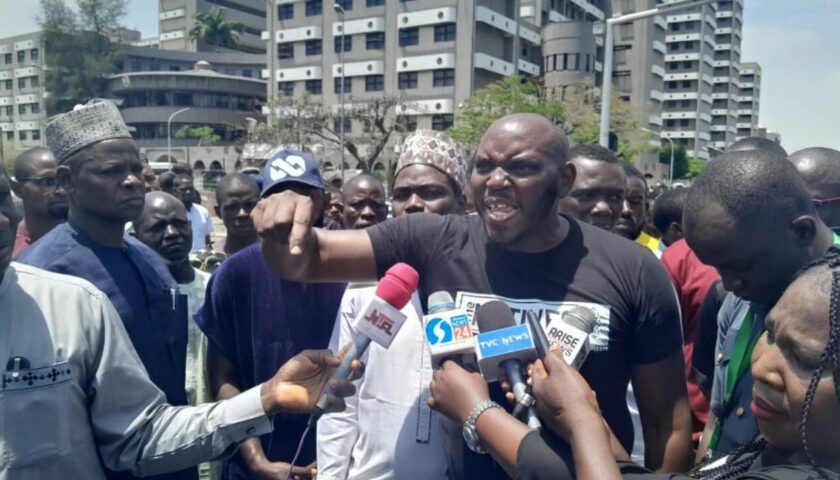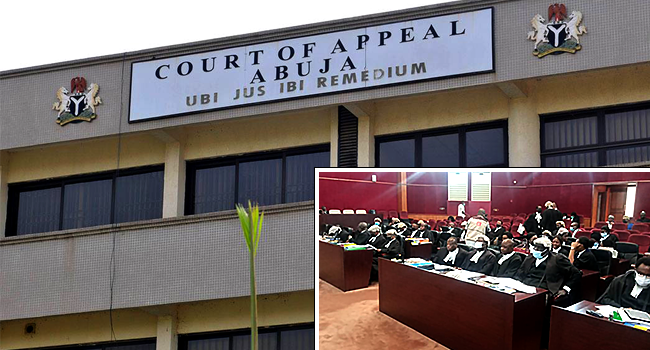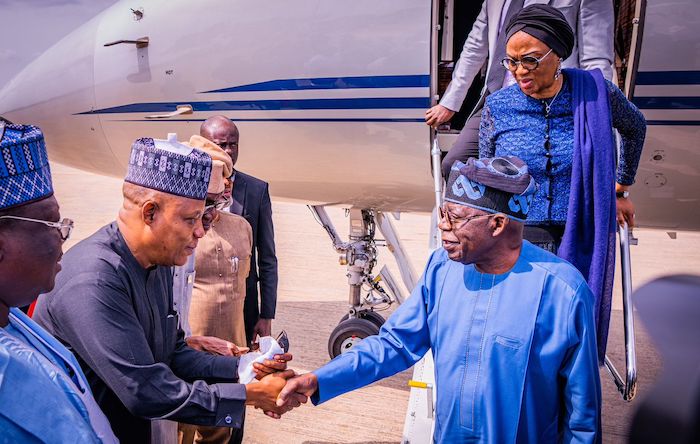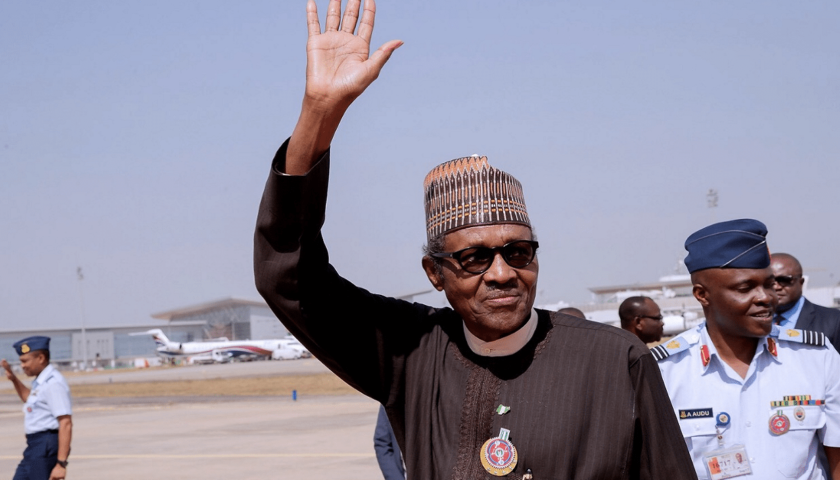By Emmanuel Gandu
QUOTE OF THE DAY
“When we revolt it’s not for a particular culture. We revolt simply because, for many reasons, we can no longer breathe. The future will have no pity for those men who, possessing the exceptional privilege of being able to speak words of truth to their oppressors, have taken refuge in an attitude of passivity, of mute indiference, and sometimes of cold complicity”
— Frantz Fanon (1925 – 1961)
HIGHLIGHTS
® Quote of the day
® The concept of revolution
® Objective of this presentation
® The critical and Crux of the matter
® Revolutionaries and revolutions around the world :
√ Marshall Plan of 1948
√ French revolution
√ Che Guevara
√ Pope John Paul II
√ Jerry Rawlings
√ Frantz Fanon
√ Nelson Mandela
√ George Washington
√ Napoleon Bonaparte
√ Vladimir Lenin
√ Muammar Gaddafi
√ Fidel Castro
√ Mao (Chairman) Zedong
® Why Nigeria cannot have a revolution
THE CONCEPT OF REVOLUTION
The history of the world is the story of revolutions. Since from the beginning of recorded civilization revolutions have been led by men and women who were enshrined in the collective memories of world changers.
By their very mature, these revolutionaries changed the status quo, sometimes for better and sometimes for worse.
Countless famous revolutionaries have emerged throughout history, challenging the status quo, and transforming the world around them.
They have altered political, economic, social and cultural landscapes with their unmatched zeal and unwavering dedication to their respective causes.
A revolution is a political upheaval in a government or nation state characterised by great change leading to the removal and or replacement of a government.
It is a social movement by the people, of ideas and methods leading to a new system of doing things.
A revolution manifests especially in a situation where people completely and suddenly change their leadership, change their government, political system, or certain aspects from the status quo.
A revolution is an event which has a major impact on changing the political, economic, or social structure of society – usually in a short space of time. It can prolong depending on prevailing exigency.
To achieve its aims, a revolution may be peaceful or violent.
These aims are usually tied to an ideology eg. communism, liberalism, or related to national independence.
Significant social and cultural changes may also be considered worthy causes.
Revolutions as always, may also be referred to as rebellious, insurrection, uprising and civil disobedience.
A revolution is achieved either through:
1. Peaceful democratic means/processes of the ballot box.
2. Military force of the barrel of the gun.
3. Mass civil public uprising of disobedience sometimes accompanied with destruction of property and or casualty of life, characterised by series of uncoordinated events.
4. An organized system to salvage a seemingly threat or hopelessness in the society.
THE OBJECTIVE OF THIS PRESENTATION
Society is confronted with a high deficit of good leadership, maladministration is the order of the day, the masses of the people are unduly subjected to poverty and hunger, unemployment, hardship, poor education and health services, insecurity, corruption, etc despite the availability of abundance of resources at the disposal of those at the helm of affairs.
Inarguably, these unfortunate situations leaves much to be desired.
This presentation is an attempt to provide a perspective on the concept, principles, practice of revolutionary movements as of both national and international phenomenon.
The discourse will attempt to draw on the revolutionary machinery, and understanding of the different behavioural practices of global stake holders, players, actors, and victims of circumstances that eventually lead to needs for interventions in form of organized public resentment.
This presentation seeks to highlight and show how revolutionary movements can seek to disrupt the existing order of despots and gladiators who exploit the seemingly obvious gullibility of the corrupt, materialistic and divisive citizenry in order to perpetuate themselves in power for the sake of, as they claim, the “common man”, yet are inevitably entangled to the plundering and looting of the resources meant for the same “common man”.
To achieve this objective, I will reproduce and highlight some of those revolutionary efforts of men and women of the past.
In doing this I will focus on some of those different countries, the various circumstances and situations, including the methods, conduct, principles and ideologies employed, achievement and results of such revolutionary movements.
Hopefully, the outcome of this discourse/debate will be informed by critical strategic social viewpoint of revolution, peace, violence, resistance, uprising, strikes, civil disobedience, etc in a global world order.
THE CRITICAL AND CRUX OF THE MATTER
This presentation is itself a revolution – a revolution because it is :
(1) Addressing the issue of a fast-growing Nigeria’s population without commensurate and deliberate plans to effectively strategize for the impending population explosion.
I make bold to say that Nigeria’s huge population is not an asset. It’s neither a dividend but rather a disaster.
Currently (2024) Nigeria’s population of 243.57 million ranks the country at No. 7th. in the world.
According to the United Nations (2024), demographic projections shows that Nigeria’s population is expected to reach 262.98 million in 2030 ie in 6 years time. This will increase further to 401.32 million in 2050 ie in 16 years time. It will further shoot up to 732. 94 million by 2100, and at that time Nigeria will be the 3rd largest population in the world.
Meanwhile, government is not investing in this human capital.
There are about 20 million out-of-school children, the influx of foreign herdsmen from the Sahel region taking over territories do not allow for meaningful agriculture, insecurity is driving away domestic and foreign investment, government is struggling with the payment of huge foreign debts, and government is unable to even ensure the provision of the basic necessities of life like food.
Demonstrations are on going (February 2024) across the country in protests against excruciating poverty and hunger in the land.
It is frightening, it’s tragic, it’s a disaster, and a catastrophic time bomb waiting to explode within the next few years, 5 to 10 years, and at worst by the turn of the century if nothing is done urgently.
This is where a revolution like the Europe Marshall plan beckons.
(2) Beaming the light on revolutionary outcomes like the Bolshevik revolution, French revolution, the revolution against Apartheid, the Arab Spring Revolution that swept across the Arab countries, and other revolutions in African countries.
(3) Contribute to provoke public discourse about the attitude of the leadership on the plight of the governed especially in developing and disadvantaged societies in the face of poor governance, poverty and hunger, high cost of goods and services, unemployment and economic hardship, collapse of education and health services, killing and criminality.
(4) Contribute in mobilizing the citizenry on the need to take their destiny in their own hands by seeking peaceful and better democratic alternatives to the pervasive corrupt leadership in order to change the status quo.
SOME PAST REVOLUTIONARIES / REVOLUTIONS AROUND THE WORLD
(1) MARSHALL PLAN OF 1948
When World War II ended in 1945 Europe lay in ruins, its cities were shattered, its economies were devastated, its people were hungry, they faced famine.
In the two years after the war, the Soviet Union’s control of Eastern Europe and the vulnerability of Western European countries to Soviet expansionism heightened the sense of crisis.
To meet this emergency, then US Secretary of State George Marshall proposed in 1947 that European nations create for their economic reconstruction and that the United States provide economic assistance for the purpose.
In 1948, US president Harry Truman signed the act that became known as the Marshall Plan, where over $13.3 billion was appropriated for European recovery.
This aid provided much needed capital and materials that enabled European recovery.
* Isn’t this kind of wholesome plan better than the so called Nigerian ‘trader money’ or the ‘school feeding Programme’, or the ‘humanitarian stipends for the poor’, or the so called ‘parlliatives’?
The unfortunate reality is that these funds ends up in the pockets of the corrupt state governors, legislators, and rest of politicians.
(2) FRENCH REVOLUTION
This Revolution which began from 1789 to 1799 was a radical political and social movement that changed France from a Monarchy to a Republic, and the abolition of feudalism.

CAUSES OF THE FRENCH REVOLUTION:
The causes of the revolution were social, political, and economic stagnation which the existing regime led by Louis XVI proved unable to manage:
(1) Economic inequality
(2) Unemployment
(3) High food prices
(4) Economic depression
(5) Rapid population growth
(6) Rising government debts
(7) Repressive tax system
(8) Continuous government resistance to reformation/change.
(3) CHE GUEVARA (1928 – 1967)
Ernesto Rafael Che Guevara is an Argentine born, a radical fighter of poverty in Latin America through his revolutionary movements, a revolutionary who became a prominent figure in the Cuban revolution, and later a guerrilla leader in South America where he lived as a symbol of left-wing revolution.
Guevara’s extensive travels through South America as a medical student opened his eyes to the plight of the poor in the continent.
Che Guevara later became a Marxist before meeting Fidel Castro and his brother Raul Castro who were in exile in Mexico.
Guevara joined their mission to overthrow the dictatorship of the then Cuban leader Fulgencio Batista. He became a close confidante of the Castro brothers.
After two years of fighting they succeeded in overthrowing the Batista dictatorial government, and Che Guevara became a Cuban citizen and a trusted member of the new government.
He was subsequently made President of the Bank of Cuba and was known for his anti – capitalist and anti – American views.
However, and disillusioned with Cuba’s progress, Che Guevara left the country in 1965, spending time in the Congo assisting Patrick Lumumba, before returning to Bolivia to lead a guerrilla force.
There he was captured and shot by loca forces aided by the US Central Intelligence Agency (CIA)
In 1997 his remains were returned to Cuba on the 30th anniversary of his death.
(4) POPE JOHN PAUL II
Popularly known as the Apostle of World PEACE, the now Saint impacted the world in an unprecedented manner.
Beginning from his native home country Poland, John Paul II peace revolution got a starting boost from Lech Walesa, a dependable ally and labour leader of the workers union of the popular Polish Solidarity Movement.
The next great and powerful world leaders that Pope John Paul II “recruited” were US President Ronald Reagan and Soviet leader Mikhail Gorbachev.
The trio had series of meetings to bring peace to the world at the Vatican, at the White House, and at the Kremlin.
With this powerful world leaders on his side, the stage was set for a series of John Paul II initiated World Peace Revolution as follows:
(a) The fall of the Barlin Wall in November 1989. This wall had divided and sepereted Germany into two countries of Western Germany and Eastern Germany after World War II.
Pope John Paul II peaceful diplomacy with world leaders led to the eventual German re – unification as one country in October 1990.
(b) The collapse of the Cold War was actualised, and the fall of the Iron Curtains was unveiled between the Soviet Union and USA.
This epoch-making events eventually led to the collapse of the mighty Soviet Union, thereby paving the way for the balkanization/breakaway of several countries that were hither to forcefully held in that union called the Union of Soviet Socialist Republic (USSR) (remember that Ukraine was one of those countries)
(c) Pope John Paul II is credited with inspiring political reforms that led to political regime change of dictatorial governments across the world.
This was effected by his visitations to those countries through peaceful dialogue between governments and contending groups/parties. For example:
(i) Collapse of communism in Poland and all of Eastern Europe.
(ii) In Chile General Augusto Pinochet’s regime was replaced leading to the witness and restoration of democracy in that country.
The Pope visited Chile in 1987 and 1988, holding peace talks with both the dictatorial Pinochet junta and the opposition freedom groups on how to restore democracy and reconcile the country ravaged by widespread human rights abuse, assassinations and disappearance of opposition elements.
These efforts paved the way for the election of Patricio Aylwin in 1990.
This ended the (1973 – 1990) 17 years old government of Augosto Pinochet.
(iii) As for Haiti, the Pope’s peace visit in 1983 open up the country for democratic changes in order to address the problems of inequality, hunger, human rights, and other abuses leading to social change.
Jean Claude “Baby Doc” Duvalier was ultimately overthrown by a popular uprising, thus ending his 15 years (1971- 1986) rule.
(iv) Pope John Paul II peaceful wind of change blowing across Latin America did not spare the Paraguayan Authoritarian Military Dictatorial rule of General Alfredo Stroessner.
Democratic elections was eventually held thus ending Alfredo’s (1954 – 1989) 35 year rule.
(v) Nigeria: Pope John Paul II visit for the second time to Nigeria during the General Sani Abacha dictatorial regime in March 1998 enabled the Pope to appeal to Abacha for peaceful democratic political reforms in Nigeria.
The Pope also pleaded with Abacha during series of peaceful dialogue for the release of 60 political prisoners including General Olushegun Obasanjo who was imprisoned by the Abacha junta for treasonable offenses.
After that visit, God took care of events in the country and freed Nigeria from the clutches of tyranny.
Abacha died in June 1998, General Abubakar Abdulsalam came in with political reforms, Obasanjo was moved from prison to presidency, Nigeria have been enjoying an unbroken democratic dispensation since 1999.
(5) JERRY RAWLINGS (1947 – 2020)
Jerry John Rawlings was a Ghanaian military officer, aviator fighter pilot, and politician who led the country after staging a coup, for a brief period in 1979.
He led a military junta until 1992, and then served two terms as the democratically elected president of Ghana from 1981 to 2001.
Jerry Rawlings as a Flight Lieutenant in the Ghana Air Force staged an unsuccessful coup det’at in 1979 of which he was sentenced to death, imprisoned and awaiting execution.
While in prison Rawlings again staged another coup that brought him to power, this time successful – From prison to presidency.
Rawlings and his Junta had become discontent with the Ghana politicians who were accused of causing:
1. Corruption
2. Dependency on pre – colonial powers
3. Economic decline
4. Impoverishment of the citizens of Ghana
5. Devaluation of the Ghana currency
Consequently, JJ Rawlings and the Armed Forces Ruling Council took the following actions:
1.Arranged the execution by firing squad of:
(a) Eight (8) military generals.
(b) Three (3) former Ghanaian heads of state ie Acheampong, Akuffo, and Akwasi Afrifa.
(2) Rawlings also implemented “house – cleaning exercise” involving the killings and abduction of over 300 corrupt and discredited Ghanaians.
In solidarity with the wave of revolutionary win of change blowing across the world Jerry Rawlings took the following actions:
1. Hosted state visits from fellow revolutionaries from other countries including
(a) Desi Bouterse (Suriname)
(b) Daniel Ortega (Nicaragua)
(c) Samuel Nujoma (Namibia)
(d) Thomas Sankara (Burkina Fasso)
2. Rawlings reversed his predecessor’s (Limann) order of boycott of Gaddafi’s Libya.
This decision, amongst other benefits, allowed the Ghana football team the Black Stars to participate in the 1982 edition of the African Cup of Nations (AFCON) held in Libya.
The Black Stars of Ghana went on to win that 1982 AFCON trophy for the fourth time, their last win as of 2024.
(6) FRANTZ FANON (1925 – 1961)
Born in 1925 in Martinique and a descendant of slaves parentage, Fanon was a psychiatrist medical Doctor and philosopher who arrived at his revolutionary humanism through the experience of French colonialism in Algeria.
He inspired the struggle for the Algerian independence and other African Anti Colonial Liberation Movements.
Frantz Fanon wrote many books including
– ‘Black Skin’
– ‘White Masks, and of course
– ‘The Wretched of the Earth’.
Due to his radical revolutionary movement, he was later to be condemned to death by the French in Algeria, but fled to Tunisia, until his death of Leukemia in America in 1961.
(7) NELSON MANDELA (1918 – 2013)
A lawyer, Nelson Rohihlala Mandela was a South African anti Apartheid activist and politician who served as the first president of South Africa from 1994 to 1999. He was the country’s first black head of state and the first elected in a fully representative democratic election. His government focused on dismantling the legacy of apartheid by fostering racial reconciliation. He was ideologically an African nationalist and socialist. He served as the president of the African National Congress (ANC) from 1991 to 1997.
Inspired by Gandhi’s ideas of non violence resistance, Nelson Mandela fought against the white South African’s government’s institutionalized racial segregation otherwise known as apartheid.
For refusal to denounce his stance for the struggle, Mandela was imprisoned with hard labour in Roben Island for 27 years.
Showing unparalleled resilience against white minority rule, Mandela became a symbol of national strength and hope.
He was eventually released from prison from where he served as the first black president of South Africa.
(8) GEORGE WASHINGTON (1732 – 1799)
One of the founding fathers, he became the first president of the United States of America.
As the commander in chief of the Continental army during the American Revolutionary War, George Washington led the Americans to victory against the British.
(9) NAPOLEON BONAPARTE (1769 – 1821)
A French military and political leader he is considered one of the most influential figures in European history.
He successfully led the French Empire against every other major European power, dominating continental Europe through a series of military victories till he was defeated by the British in the battle of Waterloo.
(10) VLADIMIR LENIN (1870 – 1924)
He was a Russian revolutionary and the leader of the Bolshevik Party, becoming the first leader of the Communist government of USSR that was established in 1917.
Lenin’s brand of communism was a variant of Marxist ideas known as Leninism.
(11) MUAMMAR GADDAFI (1942 – 2011)
Col. Gaddafi was the authoritarian leader of Libya for 42 years. He had begun a revolution that deposed King Idris Monarchy from power in a 1969 bloodless military coup.
He went on to establish a regime that revolutionized economy, politics, military, oil production, and every sphare of Libyan life.
Gaddafi was overthrown in 2011 during the Arab Spring Revolution that swept across the Arab countries.
(12) FIDEL CASTRO (1926 – 2016)
This Cuban revolutionary ruled as the president of Cuba for 32 years after he successfully led the Communist revolution in Cuba, overthrowing the dictator Fulgencio Batista.
A believer of Marxist Leninist principles, he is lauded by many for improving education, health care services, and standing up to US imperialism.
It is interesting to note that the United States Central Intelligence Agency (CIA) made 638 assassination attempts on him, all which failed.
(13) MAO (CHAIRMAN) ZEDONG (1893 – 1976)
Chairman Mao as was fondly called was a Chinese Communist revolutionary and founding father of the People’s Republic of China, which he governed from its establishment from 1949 until his death in 1976.
He is credited with driving imperialism out of China, promoting the status of women, improving education and health care.
WHY NIGERIA CANNOT HAVE A REVOLUTION
(1) Tribal and regional affiliation:
Nigeria is a country of over 350 tribes, and is sharply divided along these faultline.
If the government in power is, for example, led by a northerner, the entire Hausa/Fulani north will view any revolution as a denial of their turn (Emi lokan) to rule.
Likewise for the Southwest, Southsouth, and Middle Belt. God bless the Southeast.
(2) Religion:
When the German socio-political economist and philosopher Karl Marx theorized that religion is the opium of the people, little did he know that Nigerians, more than any other people under the sun were going to validate his hypothesis.
You may not be wrong after all if you hold that Marx actually had Nigeria in mind.
Nigerians can fight and kill in the name of God, for the sake of their religious faith.
If the cases of the Muslim-Muslim Ticket in the APC led government of Nasir El Rufai in 2019 and 2023, and that of the APC presidential ticket and 2023 election are anything to go by, and still fresh in our memory, why wouldn’t those opposed to any form of revolution not give out many doses of opium ?
(3) Poverty and hunger:
The suffering and hungry masses who, incidentally, will be the ultimate and direct beneficiary of the revolution are open to being bribed with peanuts in order to stage counter protests/destruction against the organized revolutionary movements.
(4) Uneducated and unexposed citizenry:
There are about 20 million out-of-school children in Nigeria. This untrained youths roaming the streets will not be able to appreciate the aims of the revolution. They will therefore become ready recruits as thugs against the revolution.
(5) Corruption: Corruption has eaten deep inside the fabric of the Nigerian Society so much such that any attempt to stage a revolution against corruption will be met with opposing rented crowd, compromised security agents, inducing law enforcement and legal personnel, breaking the rank and file of the organizers of revolutionary movements with monetary and material inducement.
(6) Politics: The political class irrespective of party affiliation will gang up with stiff resistance against any planned revolution. This they do in order to maintain and protect their interest.
(7) Harassment of International Community: The international community will be intimidated and blackmailed to keep off from Nigeria’s internal affairs.
This is similar to the case of Nasir El Rufai’s threat of returning any foreign interfering diplomat in “body bags” to his home country, prior to the 2019 general elections.
(8) Fifth columnist: Saboteurs within the rank and file of the organizers of revolutionary movements in order to scuttle the plans cannot be ruled out.
(9) Harassment of civil servants: Civil servants will be intimidated by threats of salary withdrawal if they join in the revolutionary movements.
(10) Use of military to shoot to put down any form of revolutionary movements, gathering, strikes and protests like was done during the popular October 2020 ENDSARS protests where several people were killed with life bullets, and many others unaccounted for.
(12) Elimination of revolutionary leadership:
There will always be assassination, abduction, disappearance, and imprisonment of members of the revolutionary movements, their supporters, etc.
Peace





